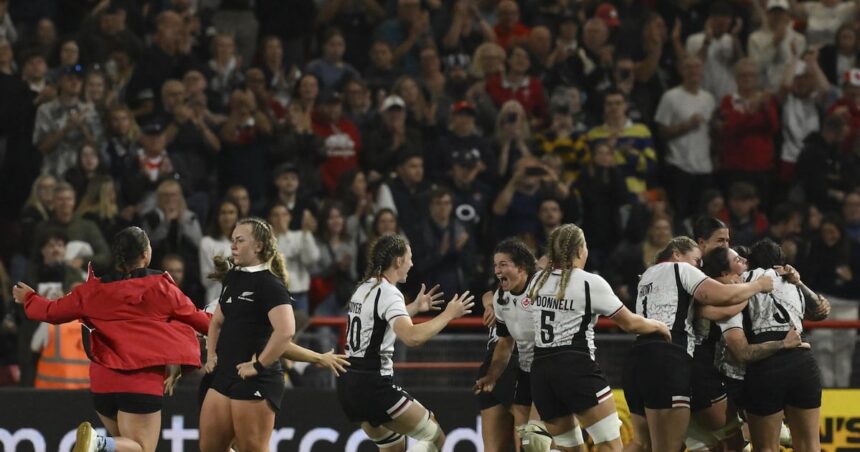The crack of dawn rarely sees Calgarians gathered en masse, but this Saturday will prove an exception. As first light breaks over the city, dedicated rugby enthusiasts will assemble at the Calgary Rugby Union clubhouse, bleary-eyed yet buzzing with anticipation for the Rugby World Cup final. The early 5 a.m. kickoff hasn’t deterred the faithful—rather, it’s transformed an inconvenience into an occasion.
“This is more than just a game,” explains Sarah Hawkins, events coordinator for the Calgary Rugby Union. “It’s about community, tradition, and celebrating a sport that doesn’t always get the spotlight in North America.”
The watch party, complete with a breakfast buffet and open to all ages, represents something increasingly rare in our digitally fragmented culture—a genuine communal experience built around shared passion rather than algorithm-curated content. While most sports viewing has retreated to private living rooms or fractured across personal devices, rugby maintains this tradition of collective celebration.
Rugby’s growing popularity in Canada speaks to our evolving sporting landscape. Once considered a niche activity, the sport has gained traction as parents seek alternatives to hockey and football amid concerns about concussions and costs. The Rugby World Cup, held every four years, serves as the pinnacle of international competition, though it remains overshadowed in North American media by more commercially dominant leagues.
“What we’re seeing is the beautiful intersection of longtime rugby fans who’ve followed the sport for decades and newcomers who are just discovering its appeal,” notes Hawkins. “The early morning time slot actually adds to the experience—there’s something special about gathering when most of the city is still asleep.”
The Calgary Rugby Union’s decision to host this event reflects a broader understanding that sporting events function as cultural touchstones. In an age where shared experiences are increasingly rare, these gatherings take on heightened significance. They aren’t merely about watching athletes compete; they’re about preserving traditions of togetherness that predate our digital fragmentation.
The clubhouse setting itself enhances this sense of authenticity. Unlike corporate sports bars with their plasticized environments, rugby clubs maintain an organic connection to the sport they celebrate. Photos of local teams line the walls alongside international memorabilia, creating a space where global spectacle meets local community.
What makes this particular gathering noteworthy is its deliberate inclusivity. “We wanted to ensure families could participate,” Hawkins emphasizes. “Many of our members are parents who’ve had to choose between their passion for rugby and family responsibilities. This event eliminates that choice.”
The breakfast element transforms what could be a logistical challenge—the early hour—into a defining feature of the experience. There’s something quintessentially communal about sharing a meal while witnessing a global sporting event unfold in real time alongside others who understand its significance.
As we navigate an era where attention is increasingly commodified and experiences are optimized for individual consumption, these community gatherings represent a gentle pushback against isolation. They remind us that some emotions—the collective gasp at a near-miss, the synchronized cheer at a crucial score—are amplified rather than diminished when shared.
For Calgary’s rugby community, Saturday’s early morning gathering will likely be remembered not just for whatever transpires on the distant pitch, but for the connections reinforced in that predawn communion. In our quest for cultural meaning, these seemingly simple sporting traditions often carry more significance than we initially recognize.
Will such communal viewing experiences survive our increasingly personalized media landscape? The answer may lie in our fundamental human need for connection—something that even the most sophisticated streaming service cannot replicate. For one early Calgary morning, at least, that connection will be found around breakfast tables at the rugby clubhouse, where strangers and friends alike will witness a global spectacle together, reminding us that sometimes the most meaningful way to experience something is still in the company of others.
For more explorations of sporting culture and community gatherings, visit CO24 Culture or check out our analysis of evolving social traditions at CO24 Trends.











